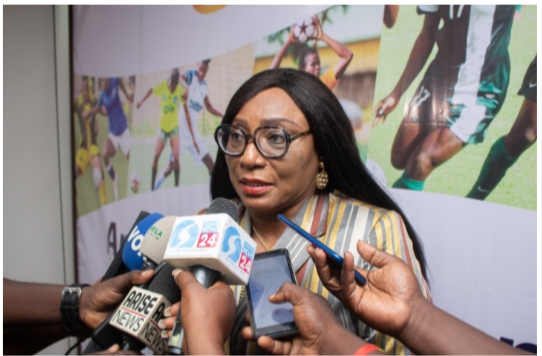
Please tell us a little about yourself ma
My name is Nkechi Obi. I wear several hats. I’m the CEO of Sport Nigeria Ltd. Sport Nigeria is a limited by guarantee, interventionist organization that was essentially set up by the private sector to act as an aggregator of funds, a facilitator of the deployment of those funds into the development of infrastructure, sports infrastructure and facilities, especially at the community level – and an enabler of a viable sports industry, community driven sports industry in Nigeria. So in that capacity, I drive all the initiatives towards aggregating local, domestic and foreign capital into facilities that would have conducted due diligence, whether that be a Greenfield or a redevelopment of moribund assets, so that we will deploy those assets towards developing a sports industry. Now, Sport Nigeria’s flagship program is called Spaces for Sport (S4S) and Spaces for Sport is our market development strategy for growing a market for goods and services in communities by deploying community sports facilities for the use of that community to promote mass participation sports and thereby encourage demand for goods and services. With the belief that if we create that demand, then commercial impact projects will follow Spaces for Sport into communities and service that demand. So it’s using infrastructure to drive demand for goods and services and then creating an industry, by servicing that demand, surely from commercial minded organizations. So that’s just one hat.
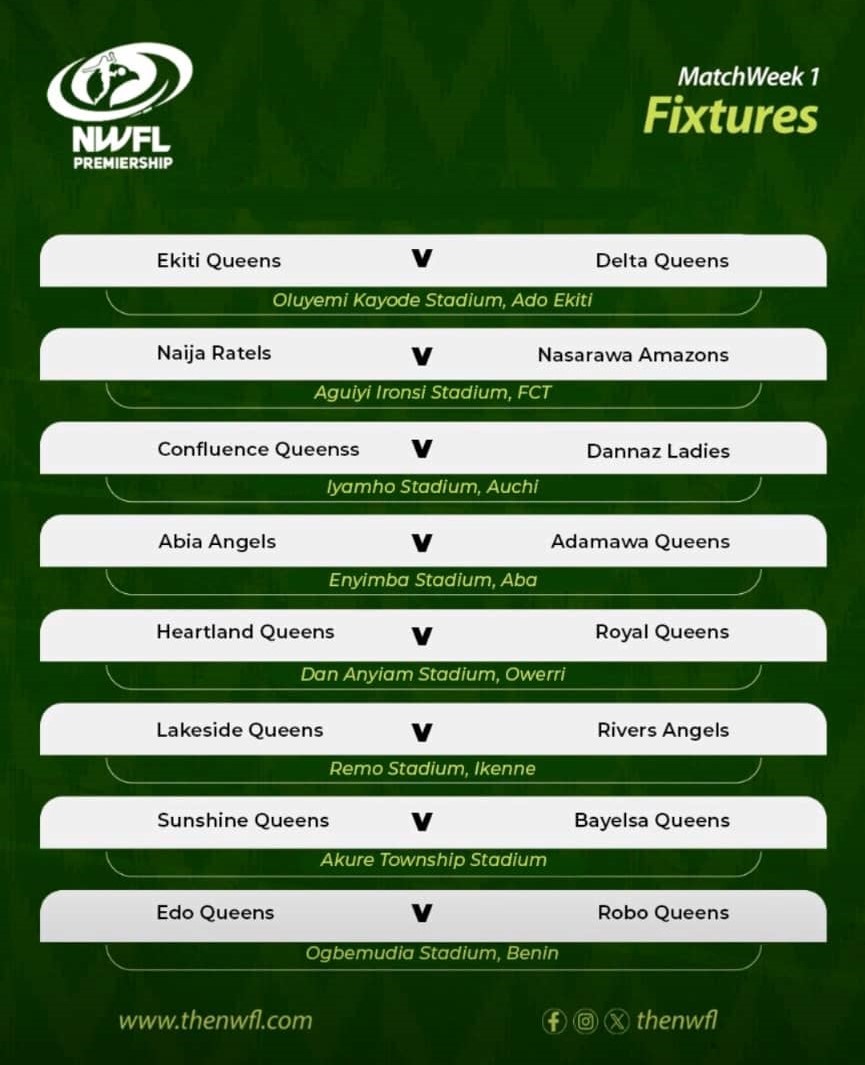
My previous hat before Sport Nigeria, which I still wear, is as the thematic lead of the Sports Industry Thematic Group (SITG) of the Nigerian Economics Summit Group. And it is as part of the Sports Industry Thematic Group that we were able to do all the work, the background work that led to the National Sports Industry Policy. Over a period of five years, we engaged over 800 people and we were able to finally come up with the Sports Industry Policy that is actually based on sports as business.
With the belief that if sports is treated like business, it could deliver both social impact and economic impact in a more sustainable way. So the Sports Industry Policy of Nigeria is actually the first attempt at having a sports industry policy in Africa, and we’re hoping others will be able to copy or emulate it if we can implement it properly. It will be something that can be replicated across Africa. So now we have that policy sorted, we’re now in the stage of ensuring the policy was actually based on the concept of what we call the 3 I and 1 P. The 3 I and 1 P is to use incentives backed infrastructure as a tool for the development of the sports industry. And it is driven by a fit for purpose policy. So the aspects that concern the public sector are the policy and the incentives. While the private sector is supposed to now leverage the policy, leverage the incentives provided, to actually now bring in the investment required to deploy infrastructure as the basis of developing the policy. When we did the work, we figured we would need an investment of $500 million every year, over a 10 year period, to be able to deliver an annual N2 trillion, and that N2 trillion was about $400 million. But N2 trillion is now just about $220 as the Naira has collapsed. At that time, we calculated that if we could deliver an annual of N2 trillion the government would earn about N150 billion in taxes, we would be able to deliver 3000 community based S4S facilities over a 10 -year period.
And we will see 200 new stadiums in the same 10 year period, just to be able to catch up to this stadium to population ratio of 1 to 1 million. We are currently at 1 to 5 million. South Africa is at 1 to 700 ,000. Great Britain and the US are at 1 to 300,000. According to the UN, the ideal is 1 to 300,000 so you can see how far back we are.
We are at 1 to 5 million. We need 200 new stadiums just to catch up to 1 to 1 million.
So, as SITG thematic lead, we were responsible for driving the process of first getting the policy. We had also already sorted out the incentives package. One of the last things that the Buhari government did was to set up a FEC committee made up of the Minister of Youth and Sports, Sunday Dare and the Minister of Finance, Zainab Ahmed, and they were asked to chair the incentives committee. We were able to come up with a basket of incentives that included VAT waivers and duty waivers – some as long as three years – and different categories that worked with customs, worked with the CBN, worked with the Minister of Finance, worked with the Minister of Trade and Industry. But unfortunately, because it was on the eve of the exit of that government, it wasn’t approved. But it’s now part of what has been presented at the new Fiscal Policy Commission headed by Taiwo Oyedele and we’re hoping that by the time he finishes his work, the basket of incentives will have been out.
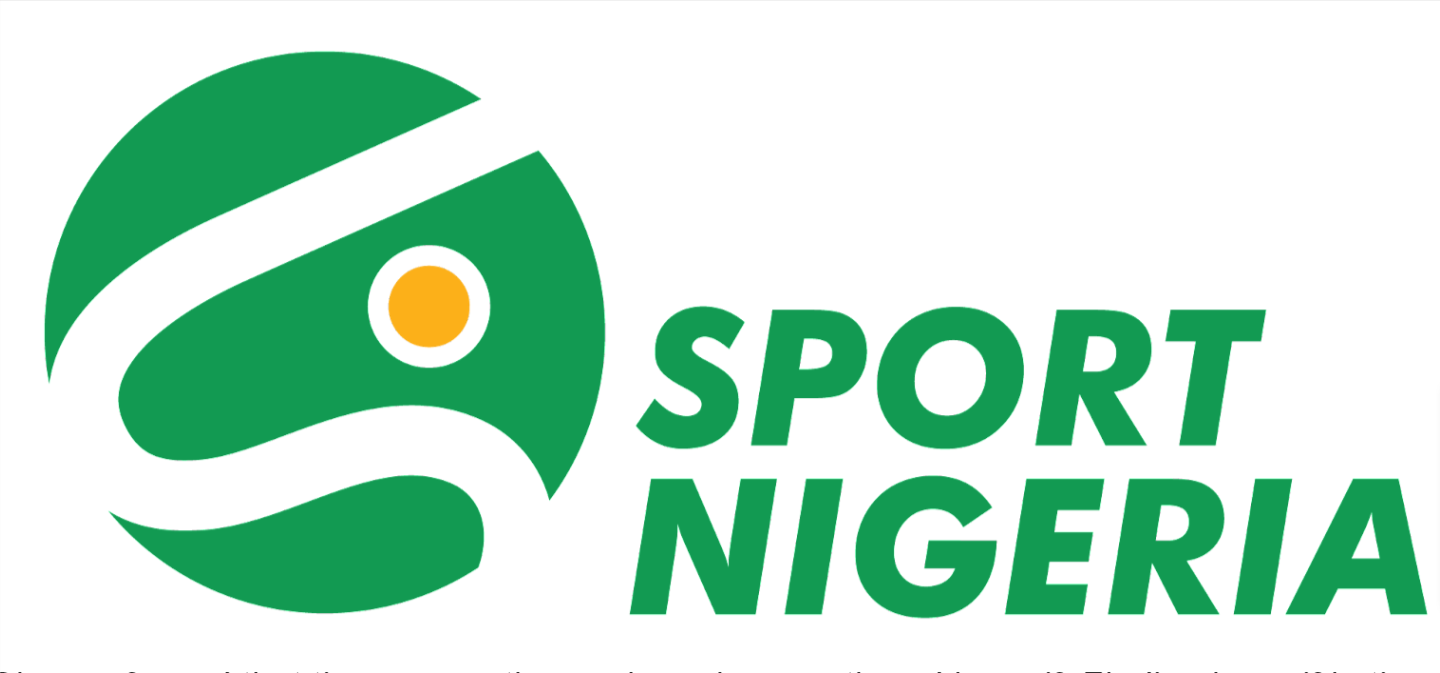
So that’s the second hat. Then three months ago, I was appointed the Chairperson of the Nigeria Women’s Football League and in that capacity to manage the women’s football league in Nigeria. Technically, we are responsible for the development of women’s football in Nigeria and it’s been quite an experience. We had to go back to the drawing board because we didn’t meet much. It’s almost as if we’re building it all over again. So, we got a board and we were able to develop a strategy, Women Football Rising. The target is to increase the number of girls and women playing football and provide pathways if you don’t want to play, to coach, or to referee, or to be involved in the media. So, we developed the capacity development program. We also developed football and now the Girl Child has her community and social engagement platform which provides young girls with incentives to pursue football as a career if they so want. And then we set up a couple of funding mechanisms. One is the Sisterhood campaign which is a group of eight women coming together from different walks of life to raise money for one of the projects. They have chosen to raise funds for the capacity development program for coaches and referees. So with this, we hope to have more women coaches, more women referees in the next three to four years. While the HeForShe is a group of men, ten men who’ve come together and who decided that they will focus on football and the girl child. So they will support the deployment of programs concerning football and the girl child in communities. So, that’s where we are. Those are the three hats. And the last hat is that I’m a mother of a 19 year old. So, I think that’s the most important hat. My daughter does E-sport and she just came back from a competition in Saudi Arabia.
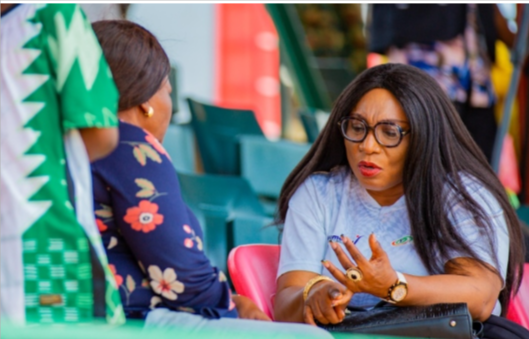
Please tell us how you got into sports. Was it a passion from childhood?
Yes, it was. Let me tell you how bad it was. I lived in the Palmgrove area during the war and regardless of what was happening we would always play football on the streets. I always wanted to be the captain. I think we were only two girls who played amongst the boys then but still, I always wanted to be the captain. I also learned to play table tennis on the streets, on those two by four tables. I learned how to smash on those tables because you know you can smash very well on them. I also learned how to fight because by the time I have won three or four games the guys would get angry. We would throw down the bat and fight. So I learned to also fight on the streets. So I throw a mean punch even now…Lol. I have not lost that so I can throw a physical punch and I can throw a verbal punch. But I come from a family where my dad and my mum were sports lovers. My mum used to play netball as we were growing up even right from when she was still at school. She would come home with an ankle sprain and everything. And so those are some of my memories. I remember that my father played tennis and played billiards too. These are the reasons why we got so interested in sports.
So by the time I entered Queens College, the year after they held the All african games, Queens college was one of the Hostels so they built all these sports facilities. I ended up playing netball, playing basketball, playing volleyball, playing tennis and table tennis. I even represented Lagos State at the Omo Table Tennis Championships. The only thing I didn’t do was swim, because I have always felt like I could drown even in the bath. So I don’t have a bath, I have a shower. With water up to my chest, I’m already gasping for breath. But I did anything I could. I played hockey for 13 years, including playing for Lagos State. I played for Unilag. I played badminton too. Then I played squash in my final year in university because I kind of felt I had put on weight during one long holiday that they gave us, which I spent abroad. And after taking up squash, I reached number four ranking in the country. I later gave up squash and I don’t do anything now but walk but the love for sport was ingrained in me.
And I served on different associations. I served on the Squash Association of Lagos state, I served on the Squash Federation, I served on the Tennis Association. I served in the Parasoccer Federation and I owned a Parasoccer Club at one time just to get a feel of being a club owner. So I’ve been an athlete, so I know what the problem is being an athlete. I’ve been an administrator, so I know what. I have also managed sports from the point of view of marketing and sponsorship. So I understand the complete ecosystem.
So going into development was an easy call for me because I’ve seen all the challenges. There was nothing strange to me anymore. I realized about 15 years ago, just after the All Africa Games in 2003, when I was instrumental in developing the Team Nigeria concept that the foundations of the sports industry didn’t exist in this country. There was a lot of money changing hands in terms of companies really wanting to use sports tools for their own business and brand benefits. But there really wasn’t any structure. It wasn’t built on anything. There wasn’t any industry. And around this period I had a nasty experience. In 2010, because of that nasty experience, I came to the realization that there would be no money in this sector before long. And if you really talk to the people in the sector, they are all having issues. Because you see what we were doing was building a house from the roof, not from the foundation. There was no foundation for the sports business. And what is happening is that the changes in technology have rendered some of the things that people used to use to make money in sports useless.
So what the sporting nations of the world had realised a long time ago is that you need facilities to play sports. Sports is best played in a good sporting facility. You also need a market for goods and services so there is a value chain and the component parts of the value change can thrive. So what most countries did was to recognize that participatory sports is not the thing. Refering to those going to the Olympics or to the World Cup. Those are events created to drive mass to a particular point to drive tourism. The heart of sports is the ability for the average man to be able to play sports at his local level. So I know I’m never going to represent Nigeria in the Olympics but I want to be able to go into a nice facility to jog, lift weights, do everything and gladly pay money for it. Then I will also want to buy equipment and so on. School children need somewhere to play sports. In most countries, children play sports in school two to three times a week. What that does is that it creates a market for goods and services. So merchandise companies supply the facility owners and build different facilities. Suddenly, there is a need for coaches and trainers and there are all the different components of the sports industry value chain. We never bothered to interrogate and do that. As I speak to you, there are a hundred thousand schools in this country.
If they came out with a law which says any school that has 400 children must have a games master and any school that has 700 and above must have two games masters, believe me, we will automatically need 200,000 games masters for schools in this country. We don’t even have up to 10,000 presently. But they are crying about unemployment. But that’s an opportunity to employ 200,000 people!
But then you need to train them. So what happens? Somebody sets up a training center and provides them with 18 months or 12 months training for a certificate in games mastership or what have you. And suddenly capacity is built. So that interrogation wasn’t done. That’s the interrogation we did at the NESG. Afterwards, I wrote a book about the industrialization of sport. Because you must industrialize before you can reap these benefits. So today I can have a conversation with you for 10 hours and I will not talk about the Olympics, I will not talk about the World Cup. Because you see, that is the end product. That is just the 20% that we all see. Nigeria is not doing any work towards the 80%. But now, we have to do the work. So the next big thing is the sports industry. And so that is where we are now. That is why the focus was on getting a Sports Industry Policy. People argued and asked why we didn’t just pursue a sports policy but I said no, we have had many sports policies. They focused on just getting talent. Anytime you discuss with a sports person, what do they talk about? Talent, discovery and management.
So to be honest with you, I have absolutely no interest in talent discovery because the talent is just on the ground there. We will always have 22 people who will suit up and represent us at the World Cup. We’ve got 200 million people! So 22 people will always come up. But here’s the situation we have now in this country. According to KPMG, we only have 77 people playing in the top five leagues of the world. Yes, only 77. Yet in the third tier of our Men’s league system, I have 25,000 players there. How are you going to ensure those ones earn a good living? The South Africans don’t send any players outside because they built an ecosystem. Their players live large. Their players drive the best cars and live in the best apartments and everything. All because they have built an ecosystem that enables this. Our league has no TV. Our players, they pay them today, they don’t pay them tomorrow. So we are trying to get people to change. The domestic demand for goods and services is critical to building the industry. That is why the former Minister, Sunday Dare, pushed for the recategorization of sports and business and started this whole process. So that is it in a nutshell.
Madam, there’s one question in particular that I have always wanted to ask. Our private sector is very good at taking up people as brand ambassadors after they have won the gold at the Olympics already. After they’ve already broken the world record. When will our private sector start looking out for talent who haven’t made it yet, who they can now sponsor? Because that is what is happening abroad.
No, that’s not what’s happening abroad. That’s not what’s happening abroad at all. The discovery of talent is done by the federations and the sports associations at the local government, county level or country level. So I said the private sector is not their business. When you have a company set up for profit, except it is a business that is set up to do sports, it’s not their business to help you to look for talent. You look for the talent and get the talent up to a point. And if that point is creating the events that are marketable, and can be utilized by the private sector to drive their own business and brand benefits, good, they can now come in. But their business is not to help you find talent. Their business is to leverage what you have, which is why we keep encouraging federations, leagues and all. That’s why you have leagues and all. They create the environment to bring the private sector in. Unfortunately for us, we have never focused on building the ecosystem. So we have never focused on providing incentives. I remember I fought for tax breaks for the private sector in 2003 when I did Team Nigeria.
I was fortunate that the chairman of the FIRS then, Ifueko-Omoigui-Okauru was an old schoolmate and she granted those tax breaks for those who decided to invest. But outside of that, nothing has been done except now that there is a policy that has actually been put out as the government’s statement of intent. So the private sector is now looking and saying wait a minute. There are 10 key policy thrust heralds. If you read that policy, chapter five is nothing but business. And in it, we made it clear. The way it was designed, we removed responsibility from the Federal Government and took it back to where people live in states and local governments. So in terms of provision of the land, the states by law in this country, own the land. So now, land for things like community facilities reside in the states. The private sector can now decide to build facilities, build training centers etc. People pay for training centers but we don’t have any. We have only one. We have nothing. Different governments have come and gone. Some have not built anything. Some only built halfway. So what do you expect the private sector to do? We focus too much on talent. We focus too much on talent to the detriment of all the others. As I explained, all the other parts of the sports industry value chain are critical. It’s time to focus on the value chain. How do we create jobs? How do we create jobs so that athlete development becomes a seamless process? How do we go from raw talent to finished product in a structured manner? The same way Jamaica will tell you which athlete will represent them in the next two or three Olympics.

They can tell you today about the 12 year old that they have discovered. They can tell you who they will put in the 100 meters line up at the Olympics. Can we say that?
Nigeria and Kenya started going to the Olympics in the same year, 1956. Kenya now has over 100 medals, half of which are gold and we have 23. We have sent the same number of athletes. So, in terms of participation, we are not there. In terms of facilities, we are not there either.
These have been all the issues. How am I going to make money? Where is the source of revenue? Is it in merchandising? I don’t want to give you the stats for merchandising. 80% of the merchandise in this country is imported. That puts such huge pressure on the Naira. It’s a wonder that the Naira still stands because it should have collapsed by now. Let me give you a scenario that we like to use. What if we said we got the government to pass a law which says all children must play sports three times a week. Let’s even say twice a week. And when they are coming, they must wear shirts, shorts, boots and bring a ball to this sports center. First of all, you see that ball part? There’s no factory making balls in Nigeria. So there will have been a huge sucking sound of more FX to China. Meanwhile, Aba is there. So you see, sorry to say this, but I have very little interest in the top athletes, though it’s good for soft power. The real thing is how do we get three to five million people employed because there’s a viable sustainable sports industry? Athletes make up only one percent of this three to five million but we focus every single penny on them. in this country. That is where we are getting it wrong. We have a long way to go but we’re not going to take that long to catch up. Look at the Telecom industry for example. We were using the 090 lines but just 20 years later, we have caught up with the rest of the world. 10 years. Give it 10 years and we’ll catch up. We have the best talent. We have the DNA in terms of talent. That’s why talent discovery is not our problem. It’s the ecosystem to support that talent. That’s the problem.
So here’s the thought, because it’s not sexy work, I can tell you. It’s hard graft. It’s hard graft talking to people, trying to convince them. Nigerians are a well traveled lot, but they can also be quite superficial. So they’re saying some people go to the Olympics, some others go to the World Cup but there’s a process to getting there. Have we asked, why is this so successful? Why is that? We never seem to ask why? I delivered a lecture the other day at a tourism conference on sports tourism. And all I did was deconstruct what Rwanda did and what Dubai did. I said, if you can deconstruct it, you can put it back together for yourself too. It’s not rocket science. A group of us just decided that, if we intend to make money in this sector, we might as well do the hard work , do the graft. At least get the policy out. And so now the policy is out and the incentives have been designed. To get the private sector to understand that now investment can come in, you need to show them the numbers. So Sports Nigeria is taking the lead in that. We work with technical advisory partners and some of the biggest law firms. KPMG has been working with us and also in terms of advisory services, we’re now beginning to talk to states. We’re having conversations with about 16 states and we’re saying to them, we’ll come into your state. We will put community facilities in place and the commercial impact will follow into your state, we are sure of that. But you need to choose how you want your state to leverage from the opportunity. For instance, do you want to be a manufacturer? Or do you prefer to leverage in another way? Choose, and then we will follow your guidance and lead you to a path that we hope will deliver results.
Fantastic. Have you been getting a good reception from states that you have approached?
Oh yes, certainly. The only thing that dragged us back a bit was the election as the focus changed for a while. We reached out to about 16 of them and the responses have been coming in. We have a few presentations and a few meetings with some Governors over the next few weeks. And so by January, a few major announcements will be made.
Good. So people are starting to see sports as business, which is the way it should be. Rather than just something of leisure. Certainly, this is what we need to see in our society.
So, it’s not only about the Olympics, the World Cup, the CommonWealth Games. Those are all end products.
Do you see sports as a critical component of education? If yes, why?
It certainly is. I have a very broad outlook on life and it came from playing sports. Whether that be team sports or individual sports. Look, when you are part of a team, the values that you imbibe from playing sports can take you through life. And these values are best learned when you’re still in school, because when none of you has anything, when you are all just starting out – pardon my expression – when all of you are pissing in the gutter together, nobody is more than the other. That is when you know who you can count on to have your back in anything. You learn to trust because you have to put your trust in your teammates to win a game. You learn the value of teamwork and strategy because without Mr A doing his part, you are not going to be able to do your part. You learn perseverance because you must train and train and train and then you race today, you don’t make the cut, but you have to go back the next day and keep training. So you learn to persevere. You learn consistency, you learn trust, you learn how to depend on your teammates and how they can depend on you. It’s like what they say in the army, you learn that you may die if your colleague doesn’t do what he’s supposed to do. So when you get out into the real world, it teaches you how to assess people. Sport is one of the most critical things and of course you learn how to keep fit too. But it’s the intrinsic values of sports that you learn while still in school that take you through life. You learn how to keep friendships because sports teaches you about comradeship, friendship and togetherness. It teaches you how to lose with dignity because one thing that I find these days is that people see life as a zero sum game. But in sports, it’s not a zero sum game because you know there’s always tomorrow to play again. If you lost today, there’s a chance tomorrow. You learn how to climb up when you play sports. Some of the oldest friends that I have today are people I made friends with while playing sports. If I had my way (and we’re working towards it) every child would play sports at least twice a week. I played both team sports and individual sports therefore I know the benefits of playing sports. So the short answer is yes, certainly, sports is a critical part of education.
And that brings us to our final question which is, what does success look like to Madam Nkechi?
First of all, I would say this has been a successful year. So when I started this journey, my first year goal was to have an acceptance of the framework on how sports should be restructured. It took five years before we got that acceptance. And it only happened when a friend introduced me to the Nigerian Economic Summit Group, formally. I’ve been to one or two of the events but this was the first time that one would attend as an organization that could drive this process. When we wrote the framework, we needed an A-list person or organisation to drive it. I spent the first five years searching for an A-list person. I don’t want to tell you all the people I went to see but in the end we found the A -list person. Or rather, the A-list organisation. So success for me in terms of the framework was getting NESG on board. Now between when we got them on board in 2016, success was each year, getting on board their track. So on their track you are taking on as part of a thematic group. So we got on board that. Your thematic group then gets a focus group forum and gets a breakout session at the Economic Summit. We got that in 2017. Then you get another breakout session and stay on that engagement. So 2018 we got that. So ticking that off, we are now well on this track. By 2019, success became about getting a group of people to back us. Thankfully, we got eight people to back us and to put us in front of key stakeholders to get what we want. That was done. Then success came by the end of 2019 in terms of the Ministerial Technical Conference because this was part of a blueprint.
So each time one thing was done, I ticked it off. I had the blueprint. The NESG didn’t have the whole hundred percent of it. We only got a hundred percent of it in 2020, after we had finished. And that’s when they saw that this was a plan that had been 10 years in the making. So in 2019, the Inter-ministerial Technical Conference brought 10 Ministries that had a role to play in sports. That for me was success because arising from that, it got the industry working. And then the biggest success was getting the Ministry of Youth and Sports to sign an MOU with the Nigerian Economic Summit Group to drive the process of industrialization. That was huge. That’s what led to the policy. The drafting of the policy in 2020 despite COVID, was a success. In 2022, the approval of the policy was the biggest thing. Sports Nigeria being set up in 2021 and the launch in 2022 was another success.
So for me, I look at 2023 and getting two or three states on board by December would be a success. But next year, our target for success is to hold the first Sports Africa Investment Summit. Once that holds, and it’s currently scheduled for October next year, I can say my work is done.
And I can sit back. So that’s really how I measure success. In January, the announcement will be made. It’s an Africa wide event.
Once in a while, one’s mind goes back to our National Stadiums, both in Abuja and in Lagos. One can see the decrepit state of the stadiums, and the truth is that we can’t afford to build a stadium today. The state of our economy cannot afford it.
We don’t need it. The Abuja stadium should never have been built there. Never. Because you see, it’s built in a place, where traffic goes away from the stadium, at the time when it should be hosting events. Yes, the funding for that stadium was supposed to have been used to build stadiums in all the communities. Because just look at how stadiums are built. Stadiums are the heart of new town development. The stadium is never on the outskirts of anywhere. It’s inside, where people live. Once you come out of your house, you enter the stadium. The Teslim Elias and Agage stadiums are the two stadiums that are actually built where they are supposed to be built. We refuse to focus on the Federal Government regarding stadiums because the federal government only owns four stadiums. We have only 47 stadiums in the whole country that have a capacity of up to 20,000. That’s why we have a 1 to 5 million ratio. We need 200 new stadiums. Some of them should be 15,000 or 10,000 capacity. And they should be built in communities.
Just a few days ago, the president approved quite a number of new universities. So, based on what you’re saying now, these stadiums are supposed to be built in communities and also in universities for the young people.
They should be built in universities. Our universities are a disgrace. No university has a 5,000 capacity stadium. But the University of Notre Dame in the US has a 77,000 capacity stadium. So our universities should actually build stadiums of 5,000 and 10,000 capacity and then monetize them. Within the university community, there are schools.
In Lagos, there is only one fully functioning stadium now, which is Onikan Stadium. In a state of 22 million people. And Onikan is less than 5,000 capacity. So we interrogated everything. It was not a pleasant experience to discover how far back we were but it was also good to at least know. Or how do you come up with a cure when you don’t know what’s troubling you? So we didn’t like it, but we’re happy to know it. That is a starting point.
It has been lovely to meet you ma. Thank you very much. Thank you.
______________________________
NKECHI NNEKA OBI
A 1982 graduate of Chemistry from the University of Lagos and 1988 MBA holder from the same university, Nkechi is a former athlete, Sports Administrator and Sports Management Consultant with over 40 Years’ post-graduation experience and accomplishment in management, marketing and administration spanning a variety of projects especially with start-up operations in Marketing and Communication, Exhibition Design and Promotion, Event Design and Management, Media Content development and broadcast (Politics, Entertainment and Sports), Political Media Campaign Management as well as Products Merchandising and Marketing. Through her experience she has seen the numerous business and political cycles in Nigeria, (pre-and post-democracy) as well as the impact on the macro-economy of policies and initiatives in these eras, especially in her chosen area of sports management.
An intellectually curious person and lifelong learner, Nkechi’s expertise in sports is based on knowledge of the business of sports garnered from years of involvement in sports administration and management in Nigeria as well as training at major sports seminars and sporting events locally and internationally. This enabled her to establish her company Premium Sports Management Services Limited, with expertise in new market development for sports as business through advocacy, capacity building and investment within the industry, and in this role, she has facilitated numerous workshops and training sessions in Nigeria and continues to do so till date.
Through PSMS and its associated companies, Nkechi has been primarily involved in the design and management of sports projects targeted at engaging the private sector as a pre-eminent partner in sports development in Nigeria, and has initiated several projects to deliver on this objective, chief of which was the Team Nigeria project (2003-2007) for the training and participation of Nigeria’s athletes at international multi-sport events such as the Olympics, Commonwealth Games and All Africa Games and a host of other events. PSMS has also acted as consultant on development of bespoke content and projects for several organisations including government agencies, leagues as well as a host of blue-chip companies looking to use sports for business and brand benefits.
Over the past 30 years, Nkechi has promoted private sector interest and investment as a key component of sports development and sees the private sector as the chief driver of the development of sports as an industry. In January 2018 she was appointed the first Thematic Lead of the Sports Industry Thematic Group of the Nigerian Economic Summit Group (NESG), where she put together a team of professionals in various economic sectors to assist the Federal Government to develop the recently passed, groundbreaking and the first of its kind in Africa National Sports Industry Policy (2022-2026), expected to reposition the sports industry as a contributor to the economic and social development of Nigeria. She was also the Deputy Coordinator of the Technical Working Group on Youth & Sports for the 2021-2025 Medium-Term National Development Plan and the Nigeria 2050 Agenda.
In furtherance of this objective, Nkechi teamed up with a group of like-minded corporate players to establish SPORT NIGERIA LTD/GTE, where she is the Chief Executive Officer. Sport Nigeria is a private sector initiative for the development of the Sports Industry by aggregating and deploying investment, development, and private sector funds across the value chain of sports, with a view to complementing governments’ efforts at national and sub-national levels to leverage the potentials for a thriving sports industry and a platform for social and youth development that makes a significant contribution to the Nigerian Economy.
In July 2023, Nkechi was appointed as Chairman of the 7-Member Board of the Nigerian Women’s Football League (NWFL) charged with the responsibility of charting a growth trajectory for the development of women’s football in Nigeria and ensuring the game leverages the current global interest and funding for women’s sport to attract more investment into the domestic game.
Nkechi is blessed with a daughter.


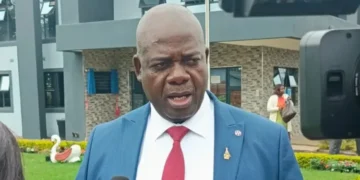
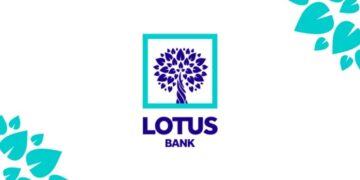

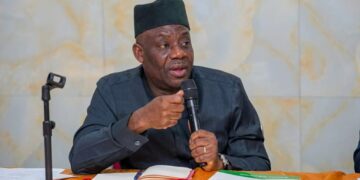
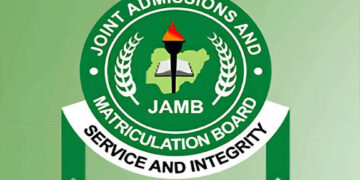



























































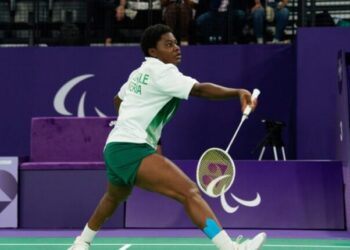
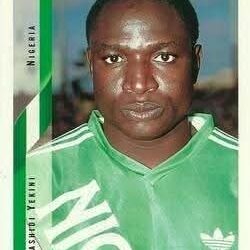
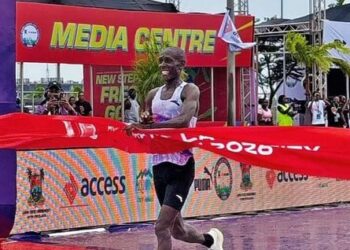
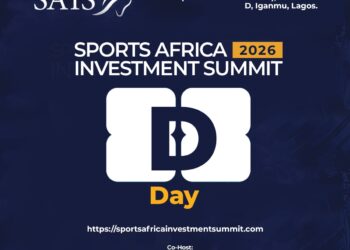
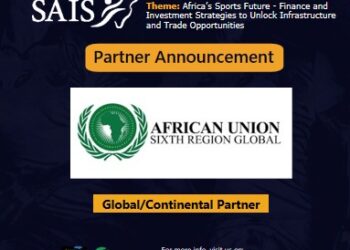
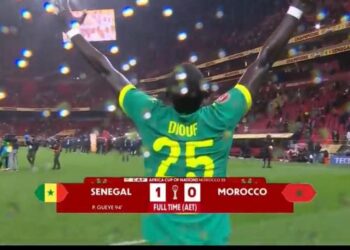










 EduTimes Africa, a product of Education Times Africa, is a magazine publication that aims to lend its support to close the yawning gap in Africa's educational development.
EduTimes Africa, a product of Education Times Africa, is a magazine publication that aims to lend its support to close the yawning gap in Africa's educational development.
This is ehy I have IPv6 off TPLink defaults to allowing all inbound IPv6 connections with no config optionAnd I dont have the time or extra money to get and setup an extra firewall to sit between my router and the rest of my network